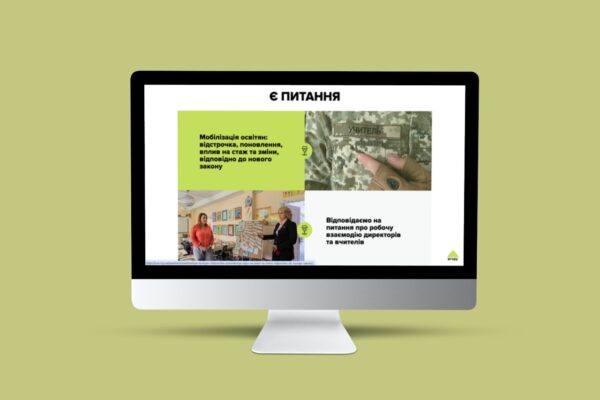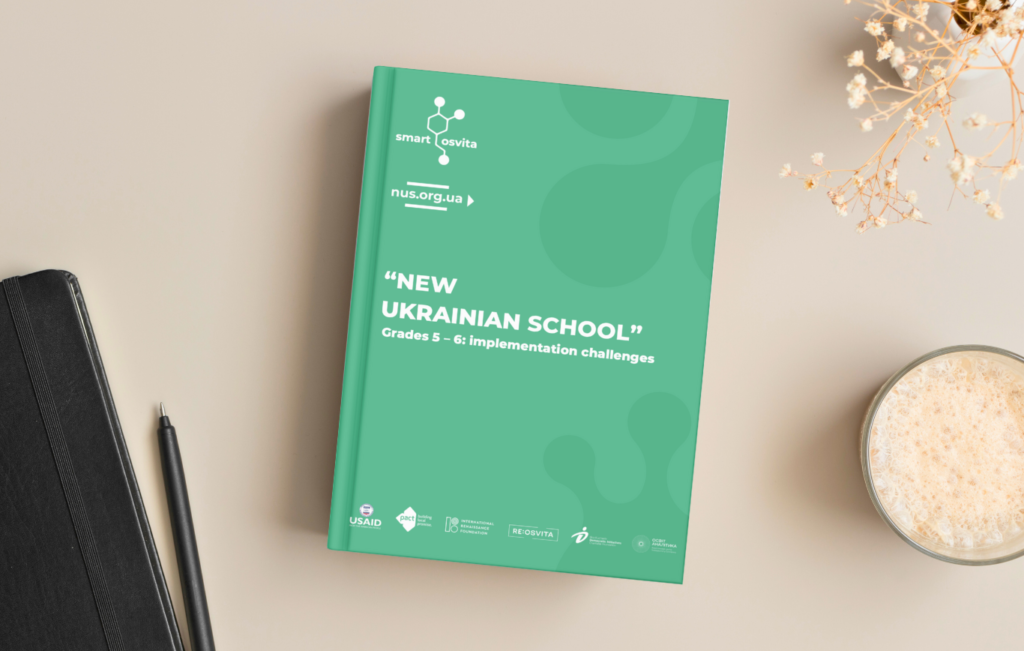

The study was initiated and conducted by “Smart Osvita” NGO in partnership with Ilko Kucheriv Democratic Initiatives Foundation and the Center for Political Sociology involving the Institute of Educational Analytics, NGO Re:Osvita, and the OsvitAnalityka Think Tank from Borys Grinchenko Kyiv University.
Read the Report of the Study via the link
The brief is available via the link
The foundations for the conclusions and recommendations were, in particular, the results of sociology – a representative survey of about 600 teachers who work with the 5th-6th grades of NUS and two waves of in-depth interviews with thirty female respondents. In addition, the study contains conclusions about the obstacles to implementing the reform.
The study, in particular, contains such topics:
- Improving the qualifications of teachers for the implementation of the reform;
- Integrated courses and individual subjects
- Model programs and textbooks
- Communication of the reform and obstacles to the reform implementation;
- Teachers’ mental conditions;
- The work of teachers with educational losses
- Reform legal framework
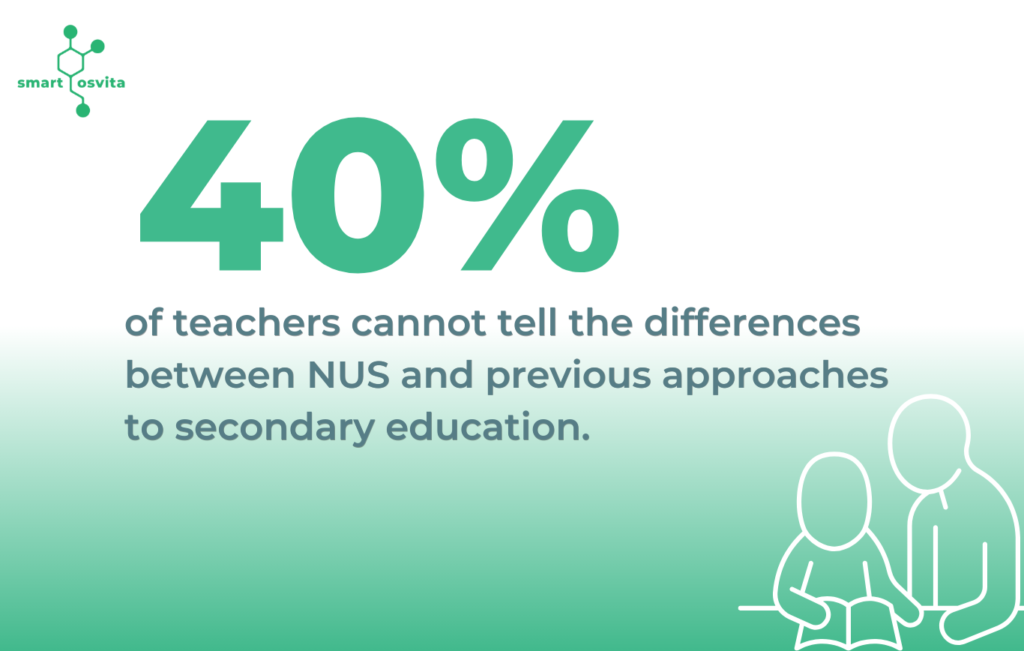
According to the Study, 95% of the respondents were informed about the NUS reform content and its difference from the old teaching system. However, 40% of them have shallow knowledge: they would not be able to explain the NUS reform content and its difference from the old teaching system to others if asked. And 5% of respondents believe they are insufficiently informed about the NUS reform content and its difference from the old teaching system.
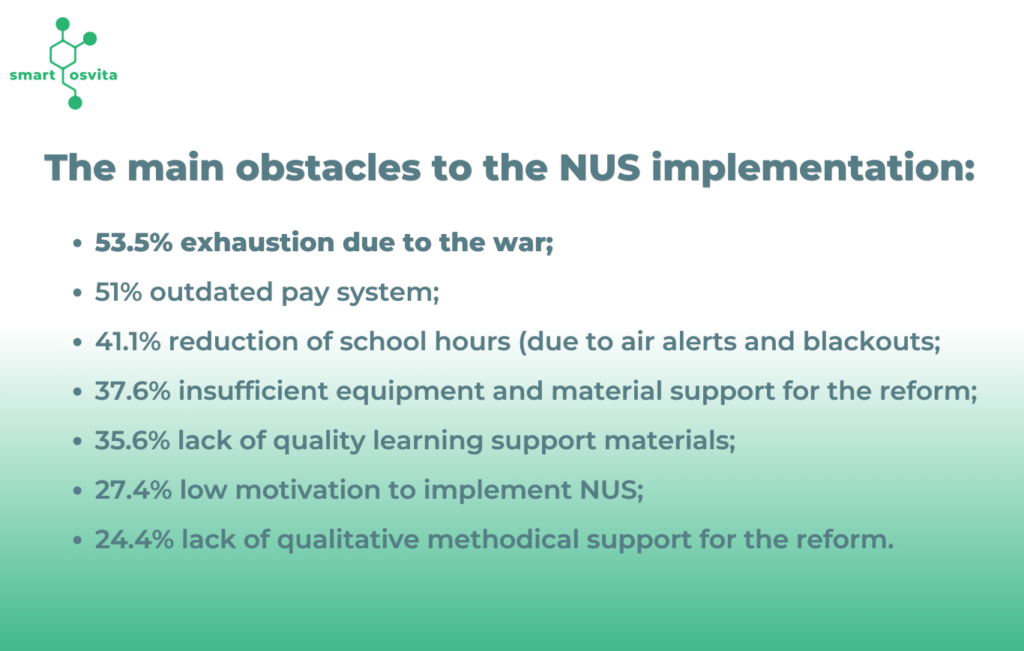
According to the teachers’ answers, the main obstacle to the NUS implementation is exhaustion because of the war – 53.5% of the respondents answered “yes” to the related survey question. Other reasons include:
- outdated pay system (51%);
- reduction of school hours (due to air-raid alerts and blackouts – 41.1%);
- insufficient equipment and material support for the reform (37.6%);
- lack of high-quality learning support materials (35.6%);
- low motivation to implement the NUS (27.4%);
- lack of qualitative pedagogical support for the reform (24.4%).
During the in-depth interviews, the problem of equipment and material support was in the spotlight as the lack of technical means and textbooks created an additional financial burden on teachers and students.
Even without funding for Grade 5 of NUS, some communities and schools managed to provide students with equipment and technical means of education, furniture, etc. To do this, they used both international and Ukrainian sponsors, as well as fundraising opportunities. Given the complex security and economic situation, the authors of the Study noted that we should consider the possibility of scaling up positive cases of self-reliance (exchange of pedagogical findings, in particular, related to evaluation; holding training sessions on writing grant applications) for local educational managers (teams of education departments, village and city councils, etc.)
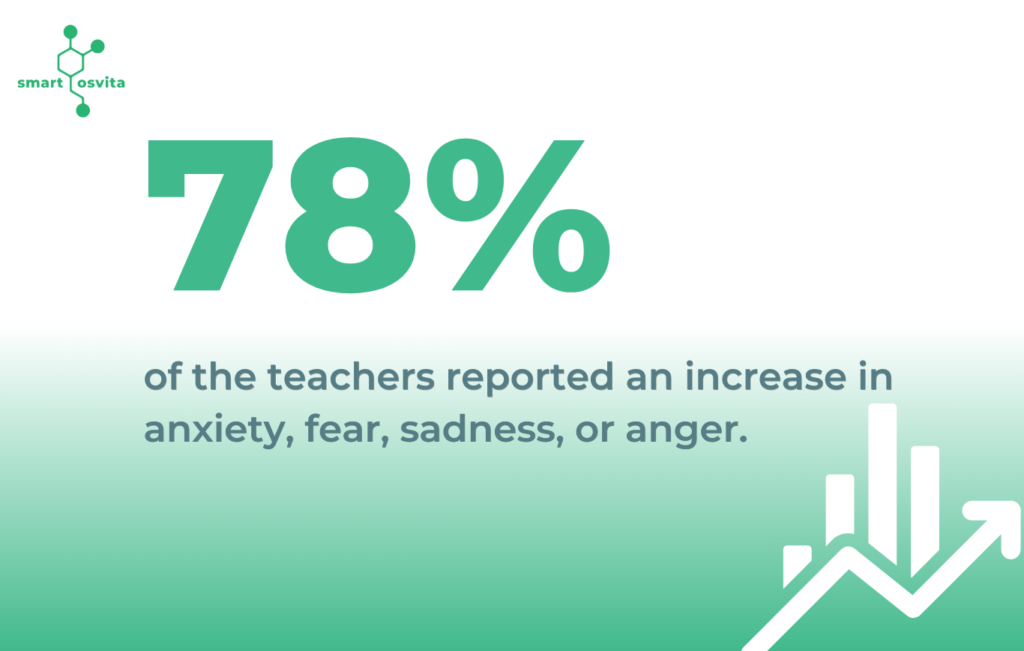
As analysts noted, compared with the statistics prior to the 2022 invasion, 78% of the teachers reported an increase in anxiety, fear, sadness, or anger. It’s mentioned in the Study that such a mental condition of the respondents can partially explain their reluctance to create tailored programs, the demand for “ready-made solutions,” commitment to model programs that are mostly copies of the “old” ones, as well as difficulties in mastering new methods of working with students of Grades 5-6.
The main comment of teachers on advanced training was – “more practical material, exchange of experiences, cases, examples, etc”. According to respondents of the in-depth interviews, they also need more time to master certain topics, guides with a brief content of the courses, as well as pedagogical support when introducing new approaches at school.
This study was conducted with the support of the International Foundation “Vidrodzhennia”. The writing team developed this document with the intention of considering the “New Ukrainian School” reform implementation status within the adaptation cycle in basic secondary education (Grades 5-6), current key problems and needs, and possible ways of addressing them.
This report presents the views of the writing team and does not necessarily imply the same views of the International Foundation “Vidrodzhennia”.
This study was presented by “Smart Osvita” NGO as part of the ENGAGE public activity promotion program funded by the United States Agency for International Development (USAID) and implemented by Pact in Ukraine. The study content is the sole responsibility of Pact and its partners and does not necessarily reflect the views of the United States Agency for International Development (USAID) or the US Government.

